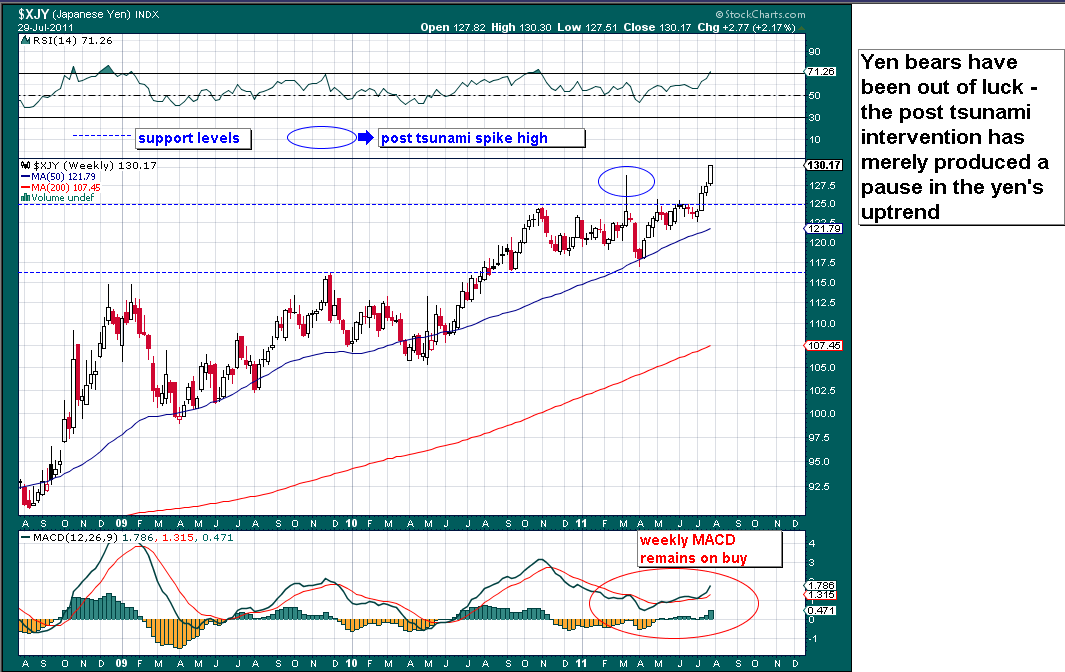Japan intervenes to weaken yen_1
Post on: 24 Июнь, 2015 No Comment

By Chico Harlan
Washington Post Staff Writer
Thursday, September 16, 2010
Japan intervened in the foreign currency market for the first time in six years on Wednesday, buying dollars to try to weaken the yen and lower the price of Japanese exports overseas.
The move came after weeks of pressure from Japan’s business leaders, who had watched the yen rise roughly 10 percent against the dollar this year, reaching a 15-year high. The intervention also marked the first major decision — and the first major surprise — after Tuesday’s reelection of Prime Minister Naoto Kan, who had indicated a reluctance to manipulate the market. After Kan defeated challenger Ichiro Ozawa, the yen rose as high as 82.86 against the dollar, with currency investors assuming that intervention was unlikely.
By buying dollars and selling yen on Wednesday, Japanese monetary authorities soon had the yen valued at 84.50 and falling. On Thursday morning, as stocks continued to fluctuate in early trading, officials said Japan may continue selling yen if needed.
Because Japan did not coordinate the move with other countries, economists viewed the intervention as a short-term fix.
Japan’s action was quickly looped into the broader trade debate. U.S. Rep. Sander Levin (D-Mich.) called the unilateral move deeply disturbing as he opened a congressional hearing on China’s currency practices. He said that having a second exporting nation intervene in currency policy was a sign that the Obama administration’s efforts to police the economy through multilateral agencies such as the International Monetary Fund were not working.
There does not appear to be anything remotely approaching an international agreement to end predatory exchange rate policy, Levin said.
China has long been accused of keeping its currency undervalued — and its goods cheaper on world markets — through sustained intervention in currency markets of the sort Japan undertook.
For the United States, a weakened yen — and a stronger dollar — could make U.S. exports more expensive abroad at a time when the administration is pushing to increase them. President Obama pledged earlier this year to double U.S. exports over the next five years.
The intervention eases pain, however, for iconic Japanese exporters such as Sony and Toyota, whose products become more expensive for other nations’ consumers when the yen strengthens. Toyota says it loses 30 billion yen (about $350 million) for every one-yen gain against the dollar.
I think both the government and the Bank of Japan were blushing with shame while watching the yen rise, said Takashi Watanabe, a professor at Bunkyo University and a former bank supervisor for the Bank of Japan. I think they just could not let that past them and played their card.
The stock market supported the move, which was made in tandem by Japan’s central bank and its finance ministry. Following the intervention, the Nikkei 225 stock average jumped 2.3 percent, closing at 9516.56.
Our country’s economy is still in a very severe situation with continued deflation, Finance Minister Yoshihiko Noda said. Noda said Japan cannot tolerate the appreciating yen. He indicated that further intervention would be considered, if necessary.
Japan did not reveal the extent of its intervention, but the Dow Jones news service estimated that the Ministry of Finance had sold 1 trillion yen ($11.7 billion) to buy dollars.
Bank of Japan governor Masaaki Shirakawa said in a statement that he strongly expects that the action. will contribute to a stable foreign exchange rate formation.
Japan had not intervened in the market since March 2004, part of a global trend toward a hands-off approach. But Japan is dealing with widespread woes, including growing concerns that its two-decade-old economic slumber will continue into a third. Japan’s economy was recently surpassed by China’s as the world’s second largest.
Special correspondent Akiko Yamamoto in Tokyo and staff writer Howard Schneider contributed to this report.














